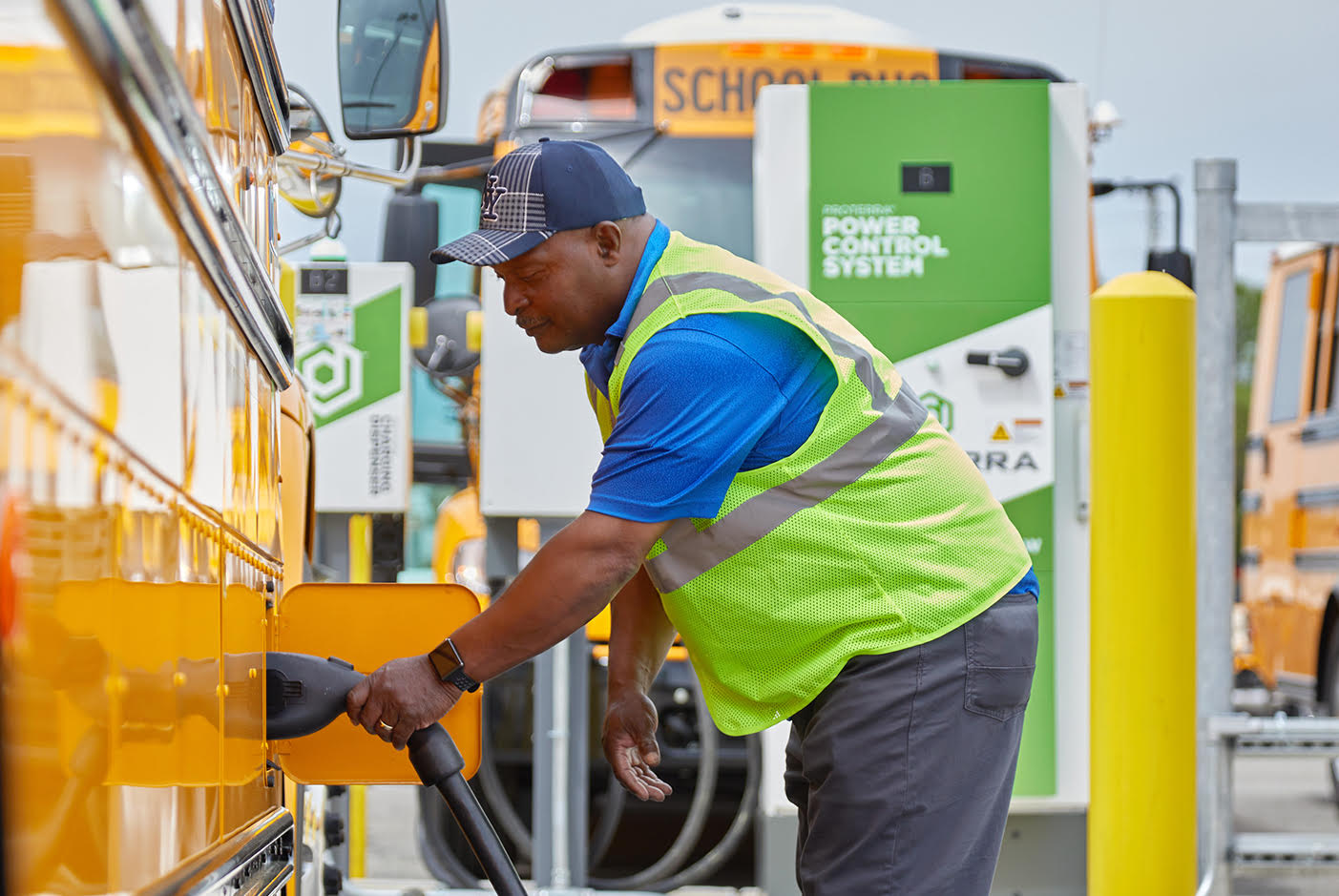With fluctuating fuel prices, perceived issues with diesel maintenance and pressure around district sustainability initiatives, administrators are looking for ways to cut transportation costs including converting their current fleets.
Is this the right move?
Here at Thomas Built, we believe battery-powered electric school buses are the future of pupil transportation. Available market data, advancements in technology and legislative policy incentives (including $5 billion in dedicated funds from the EPA’s Clean School Bus Program) are making this a reality, with a big green index finger pointing in the direction the industry is headed.
Analysts expect electric buses to continue growing market share in student transportation. As of June 2022, “U.S. school districts and fleet operators have committed to 12,275 electric school buses in 38 states,” according to an Electrek article citing a report from non-profit World Resources Institute (WRI). This number jumped by more than 10,000 since January 2022 and is 10x larger than when WRI began tracking adoption in August 2021.
New York became the first state to commit to a fully zero-emission school bus fleet by 2035 (source) with other states introducing and passing their own targets for going electric.
Districts and municipalities are embracing electrification for a variety of reasons:
- EV buses are cleaner
- EV buses require less maintenance
- EV buses are expected to operate more reliably than current fossil fuel-consuming alternatives
Electric vehicle technology is only getting better, with advancements including increased range on a single charge and improved handling performance in inclement weather. With the conversation evolving to factor in grid infrastructure, electric buses can also serve as components to give back to utility providers through vehicle-to-grid (V2G) technology. And with little to no advanced training necessary for operators and drivers, the benefits of maintaining an EV fleet are adding up.
You might be saying, “But we can’t afford the transition to EV right now.”
We understand. You need new and cleaner buses, and fully committing to electrification might be a bit out of reach right now.
And if you are exploring other options from an environmental standpoint, your research might lead you to propane buses.
Propane is a reliable alternative energy source for fleets looking for a cost-effective solution for reducing emissions. With available rebates, fleet owners can reduce the upfront cost at initial purchase.
But from a cost-benefit standpoint, conversion to any other fuel type aside from electrification does not currently make sense.
Thomas Built Buses believes that replacing diesel buses with new diesel buses (or alternatively, propane with propane or gasoline with gasoline) is the most budget-friendly option for fleets not ready to make the move to electrification. We recommend sticking with your current fuel type until you’re ready to convert to electric.
It costs money to convert to anything other than your current fuel of choice, and with the industry barreling toward electric (the cleanest and most efficient fuel, better for the environment and kids, and support for the grid and communities), there is no reason to convert your fleet twice. Replace same for same.
Things to consider:
- Conversion and upgrades such as fueling infrastructure (initial startup costs)
- Costs to train technicians and other individuals involved with maintaining the school buses
Over the long haul, EV buses will become more attainable for all districts. With increased investments and competitive production, fleet modernization is expected to become more affordable for school districts.
In addition to the Clean School Bus Program, other significant funding initiatives from federal and state levels will also drive adoption even further across the U.S., including the historic passage of the Inflation Reduction Act which sets aside $1 billion in grants for clean heavy-duty vehicles like school buses, also offers other tax credits and direct loans to support manufacturing, charging and infrastructure around zero-emission vehicles (source).
There is an abundance of funding opportunities and resources to help districts get there when you are ready to convert. Have questions? Want to learn more? Hoekstra Transportation is here to help. Contact James Murray our EV Specialist (616)896-2661 / jmurray@hoekstrainc.com. Or request an EV Consultation here: Electric Vehicles – Hoekstra Transportation.

